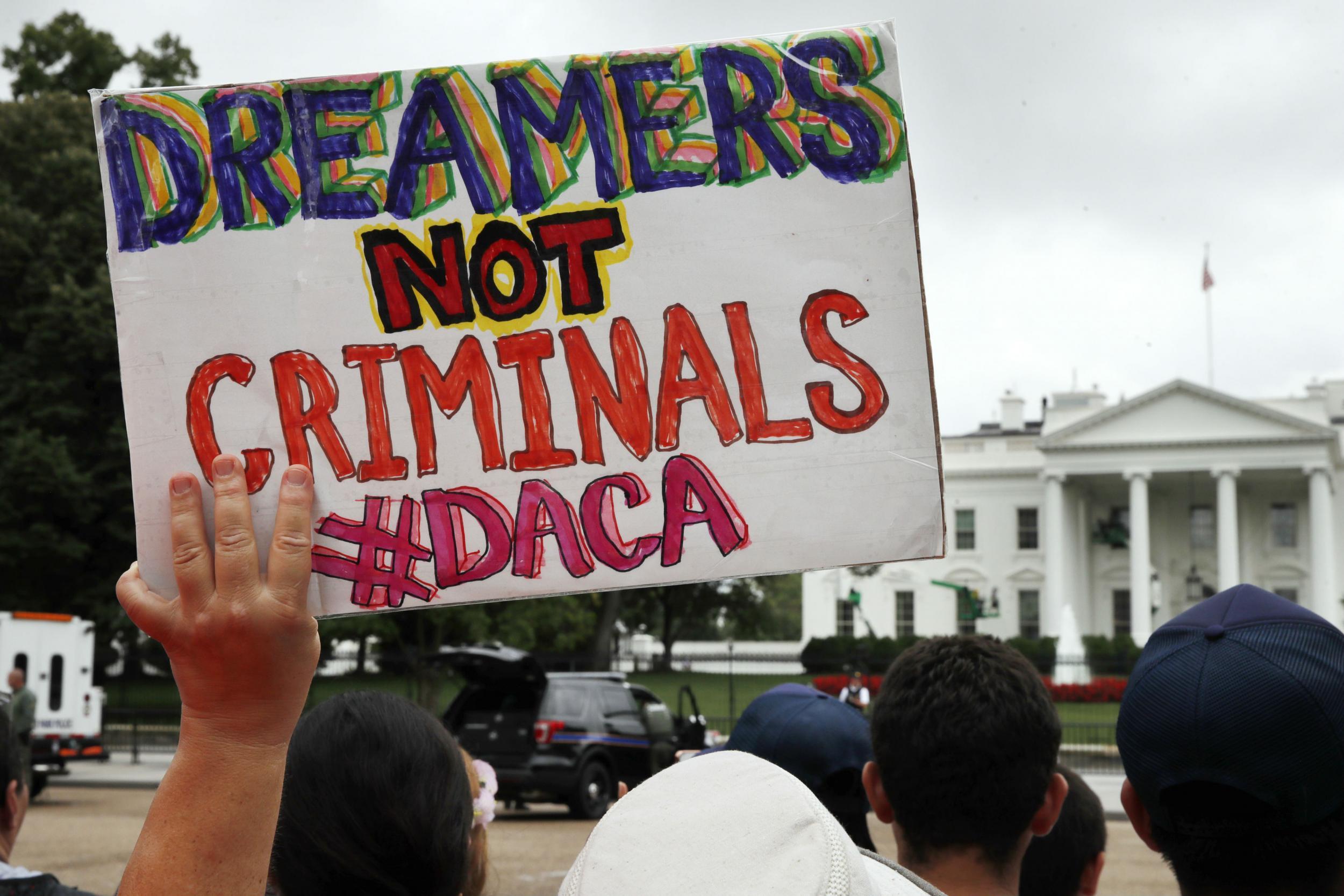Mental illness rates among children of undocumented immigrants 'double when facing deportation'
Research comes as President weighs scrapping a scheme that allows 800,000 people to remain

Mental illnesses suffered by the children of undocumented immigrants to the US drops by half if those youngsters no longer face the threat of deportation, researchers have claimed.
As Donald Trump weighs scrapping a scheme introduced by his predecessor that has allowed hundreds of thousands of children and young adults without documents to remain in the country and study, researchers said they found that removing the stress of possible deportation had a major impact on mental health.
The Stanford Immigration Policy Lab, a research group that uses data to present policy options on immigration, sought to look at the impact of the Deferred Action for Childhood Arrivals (DACA) scheme, which was introduced in 2012 by Barack Obama. Currently up to 800,000 children and young people - the so-called “dreamers” - are permitted to remain under the scheme.

They said an interdisciplinary team, including members from Stanford University, Oregon Health and Science University, the Stanford School of Medicine, and Northwestern University, looked at the intergenerational impact of the threat of deportation by examining the children of mothers who themselves were born either side of the cut off date to be eligible for DACA - June 15 1981.
The report, published in Science, a publication of the American Association for the Advancement of Science, said among the 8,610 children born to these mothers between 2003 and 2015, researchers looked for a range of mental illnesses known to be provoked by external stress, including adjustment disorder, acute stress disorder, and anxiety disorder.

The researchers wanted to see how the lives of children were impacted when their parents no longer feared being deported, the report said.
They found that before DACA was introduced, the two groups of children were diagnosed with disorders at roughly the same rate. However, after DACA was introduced “a gulf opened” between the two groups on either side of the mothers’s eligibility birth date cutoff: among those whose mothers were eligible, the rate dropped by more than half, from 7.8 per cent to 3.3 per cent.
“Our results imply that expanding deferred action, or providing more permanent protection, to the millions of unauthorised immigrant parents who do not meet the current DACA eligibility criteria could equally promote the well-being of their children,” said Duncan Lawrence, executive director of the Stanford Immigration Policy Lab.
“This would have important implications for this next generation of American citizens.”
Mr Lawrence, who told The Independent his team wanted to focus on the “downstream” impacts on mental health, said they had been working on the report for months.
Yet it comes as Mr Trump, under pressure from members of his administration and the Republican Party, is considering scrapping the DACA scheme.
During the election campaign, Mr Trump repeatedly said he would scrap it immediately. Since entering the White House he has admitted to struggling with the issue, especially since many Americans feel sympathetically towards the “dreamers”.
“It’s a decision that I make and it's a decision that’s very, very hard to make. I really understand the situation now,” he told reporters on Air Force One last month. “I understand the situation very well. What I’d like to do is a comprehensive immigration plan. But our country and political forces are not ready yet.”
CNN said this week that sources within the government believed Mr Trump would ultimately decide to scrap the scheme.
Mr Lawrence said his team had been working on the report for months. Yet he said he was pleased that it was being published now. He said: “It’s fortunate that this evidence is available.”
Join our commenting forum
Join thought-provoking conversations, follow other Independent readers and see their replies
Comments
Bookmark popover
Removed from bookmarks